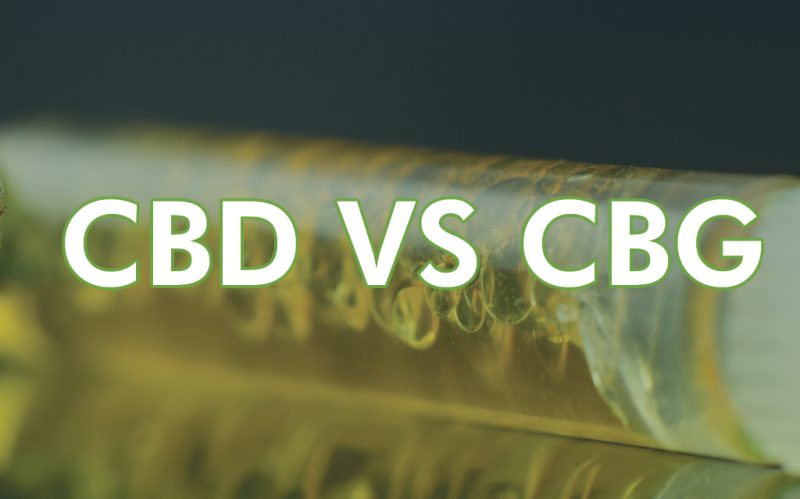Cannabidiol, or CBD, has been one of the hottest health and wellness products on the market lately with its ability to boost a variety of functions. However, more and more people are starting to pay attention to its cousin, cannabigerol (CBG). With their similar sounding names and uses, it is no surprise that people mix up CBD and CBG, but there are actually some big differences between the two.

Topics Covered
Origin
Both CBD and CBG are a type of cannabinoid, a chemical compound that interacts with the endocannabinoid system within the body. This compound is one of the many produced by the cannabis plant. Therefore, both CBD and CBG belong to the same family of naturally occurring chemicals. However, their chemical nature is a little different. CBG is the very first cannabinoid acid that a cannabis plant develops, and it is essentially the cannabis version of a stem cell. As a cannabis plant grows, it gradually converts CBG acid into either CBD acids or THC acids. When the plant is ready to harvest, it is dried out and processed to break down and separate the CBGA, CBDA, and THCA into their separate, non-acidic components.
Effects
Another similarity between CBD and CBG is that neither will get you high. The part of a cannabis plant that gives that signature high feeling is THC, a completely different compound. Since CBD and CBG are separated from all the other compounds of the plant when they are processed, you do not have to worry about any psychoactive effects. When it comes to their overall effects however, there are some differences. Both have the same general soothing and possible calming appeal, but preliminary research shows that CBG may have a somewhat stronger effect and impart a more upbeat feeling. Most of the research that has been done on the wellness advantages of cannabinoids to date is for CBD so there are simply not as many studies available for CBG that show how it may assist the user.
Price
One of the most significant differences between CBG and CBD is their costs. Typically, CBG is much pricier than CBD. This happens because CBG is found in much lower concentrations of about 1 percent in most hemp strains while roughly 20 percent of a hemp plant is CBD. Therefore, you need a far larger mass of hemp plant to extract a comparable amount of CBG. If a company chooses to just get CBG from a crop, they can harvest it and extract the CBG before it converts into THC and CBD, but then they cannot sell these other products. The higher cost of labor and resources needed to grow cannabis for CBG means that companies end up needing to charge more to recoup the cost of CBG production.
Availability
Because CBD is cheaper and more popular, it is generally easier to get. Everyone seems to be talking about CBD right now and you can find anything from CBD lotions to CBD oil gummies for sale easily. This makes it easy to select your preferred brand and method of use. People can try CBD massage oils, cookies, and more. Meanwhile, the options for CBG are a little more limited. Since it is less trendy and takes more effort to extract, you can only find it at a few specialized places. Typically, CBG comes in oils, extracts, and salves, and there are less places that make gummies, brownies, and other edible treats with CBG.
Ultimately, both CBD and CBG can be excellent choices for people who want to support a daily wellness regimen. Since their effects are a little different, why not try out both and see which one you prefer?




